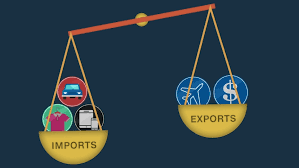Kenya’s economic growth has relied more heavily on services than manufacturing and industry over the past decade, unlike the traditional development path seen in advanced economies. This “premature deindustrialization” challenges the conventional view that countries must industrialize before transitioning to services-led growth.
That’s according to a new World Bank Group report that argues Kenya can leverage momentum in the services sector to accelerate broad-based growth and job creation nationwide.
Services now account for over half of Kenya’s GDP and employment, even though industrialization has been limited. “Kenya effectively already has a services-oriented economy,” the report states. Technological innovations like digital platforms are rapidly boosting productivity and tradability of services, creating new potential for services to drive growth.
The report provides a strategic framework centered on five key channels to maximize services’ enabling role across the economy. This moves beyond the “false dichotomy” of choosing between services and manufacturing, according to the World Bank Group.
“Growing services can enable and complement manufacturing and agriculture,” the report argues. “Services are enablers, not alternatives, for industrialization and other sectors.”
Tailored policies are needed to target services subsectors based on skills and tradability. “The policy priorities differ substantially between services subsectors,” the report states.
For higher value services like ICT and finance, the focus is on shifting more economic activity into these sectors. But for domestic services employing lower skilled workers, priorities are more about securing livelihoods and boosting productivity through technology adoption.
Kenya’s government should take a coordinated approach to reduce barriers, improve skills, encourage technology adoption and promote inclusion as part of a national services growth strategy.
“This should complement, not replace, policies for other sectors like manufacturing,” the report advises.
Services are becoming major drivers of trade and investment too, not just domestic activities.
“Reducing restrictions could significantly expand services trade and investment,” the report states.
Rapid services growth despite limited industrialization raises questions about the applicability of traditional development models.
“Kenya’s growth trajectory looks more similar to other developing economies such as Brazil, India, Indonesia and the Philippines, where services have played a large role,” the report finds.
The World Bank Group report argues Kenya is well positioned to leverage services momentum to enable broad-based growth across agriculture, manufacturing and other sectors too. But strategic policies tailored to each services subsector will be key.


















